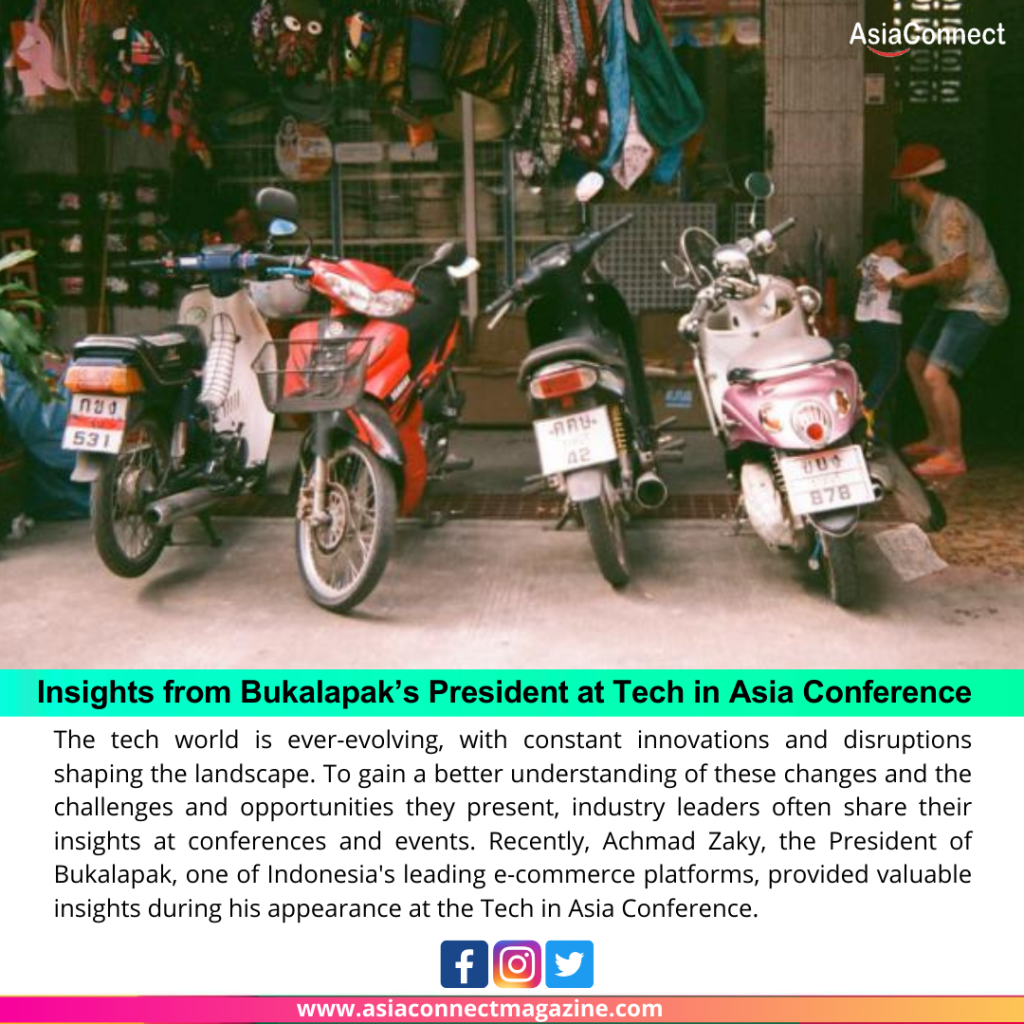
The tech world is ever-evolving, with constant innovations and disruptions shaping the landscape. To gain a better understanding of these changes and the challenges and opportunities they present, industry leaders often share their insights at conferences and events. Recently, Achmad Zaky, the President of Bukalapak, one of Indonesia’s leading e-commerce platforms, provided valuable insights during his appearance at the Tech in Asia Conference. His remarks shed light on the state of e-commerce, the role of technology in economic growth, and the future of the industry.
E-Commerce as an Economic Driver
One of the key takeaways from Achmad Zaky’s talk at the conference was the significant role that e-commerce plays in driving economic growth, particularly in emerging markets like Indonesia. He highlighted how e-commerce platforms have transformed the way businesses operate, enabling even small and medium-sized enterprises to reach a global customer base.
E-commerce has not only boosted the growth of online businesses but has also created opportunities for a range of ancillary services, such as logistics, payments, and digital marketing. This ecosystem has a multiplier effect on the economy, creating jobs and contributing to overall prosperity.
In the context of Indonesia, where the digital economy is thriving, Zaky emphasized that e-commerce platforms like Bukalapak are instrumental in empowering local businesses and stimulating economic development. As the country continues to transition toward a digital-first economy, e-commerce is at the forefront of this transformation.
Technology and Inclusion
Zaky’s insights also highlighted the role of technology in fostering economic inclusion. He spoke about how e-commerce platforms can bridge the gap between urban and rural areas by providing access to a wide range of products and services, even in remote regions. This not only benefits consumers but also empowers local entrepreneurs to participate in the digital economy.
In countries like Indonesia, where there is a diverse array of cultures and languages, technology can help unify and connect people. E-commerce platforms serve as a common ground where people from various backgrounds can buy, sell, and interact. This inclusivity not only enhances economic opportunities but also contributes to social cohesion.
Furthermore, Zaky touched on the importance of financial inclusion. E-commerce platforms often integrate payment solutions, making it easier for people to make digital transactions. This is especially crucial in regions where access to traditional banking services is limited. By providing financial tools and services, e-commerce platforms empower individuals and businesses to participate in the formal economy.
The Future of E-Commerce
Achmad Zaky’s insights at the Tech in Asia Conference also shed light on the future of e-commerce. He discussed the ongoing trends in the industry, including the increasing use of artificial intelligence and data analytics to enhance user experiences and optimize operations.
He emphasized the growing importance of sustainability in e-commerce. Customers are becoming more environmentally conscious, and businesses need to adapt by implementing eco-friendly practices in their supply chains and operations. Sustainability is not just a trend but a fundamental aspect of business strategy that can help companies remain relevant and responsible in the long term.
Zaky also touched on the potential for e-commerce platforms to diversify their services. Beyond being marketplaces, these platforms can evolve into comprehensive ecosystems that offer a wide range of services, including financial products, entertainment, and healthcare. This diversification aligns with the growing consumer demand for convenience and all-in-one solutions.
Key Takeaways
Achmad Zaky’s insights from the Tech in Asia Conference provide valuable lessons for the e-commerce industry and the broader tech ecosystem. They underscore the pivotal role that e-commerce plays in driving economic growth, fostering inclusion, and adapting to emerging trends.
As e-commerce continues to evolve, it has the potential to reshape economies, create opportunities for businesses and individuals, and contribute to a more interconnected and sustainable world. Insights from industry leaders like Zaky serve as a compass for navigating this ever-changing landscape and finding innovative ways to leverage technology for positive impact.




